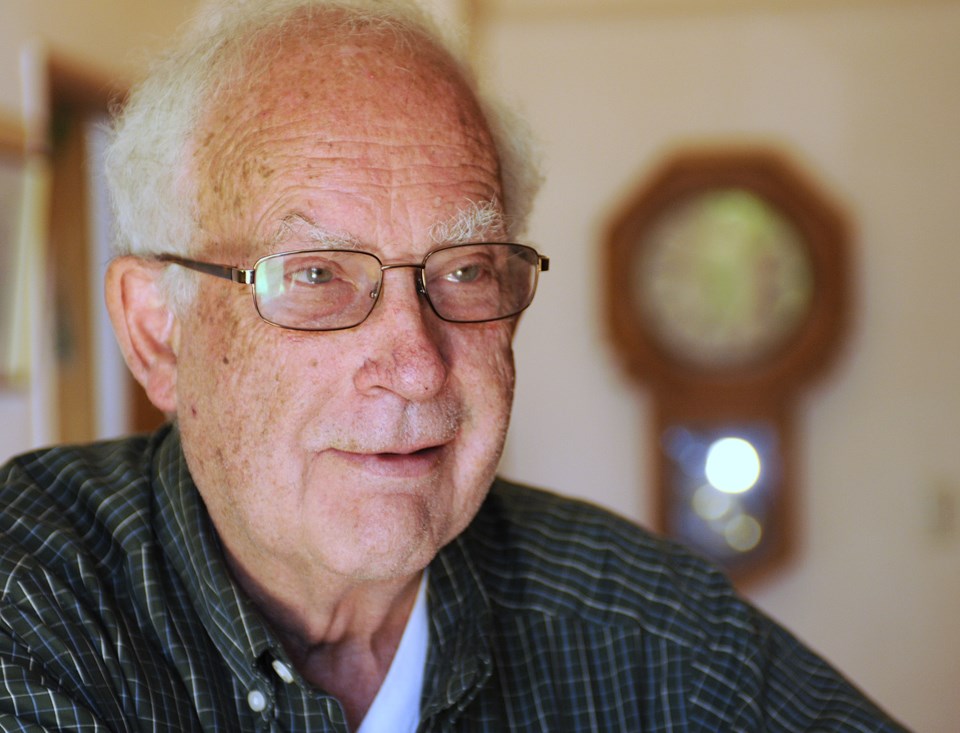Education Minister Peter Fassbender has repeatedly said the government won’t legislate teachers back to work.
But Wednesday night he rejected binding arbitration for the third time, so legislation could be the government’s next step.
Fassbender’s rejection responded to news 99.4 per cent of 30,669 teachers had voted to suspend their strike if the government would agree to binding arbitration. In June, 86 per cent of 33,387 teachers voted in favour of the full-scale strike.
Mark Thompson, a former arbitrator and professor emeritus of industrial relations at the Sauder School of Business at the University of B.C., said a previous ruling from the Labour Relations
Board stated education can only be interrupted for up to two weeks and then it becomes an essential service.
Wayne Ross, education professor at UBC and a former secondary school teacher in the U.S., says the government could ask for a ruling from the LRB.
But Thompson says this could take too much time.
“If you play your cards right you can get a back-to-work law passed in two days,” Thompson said.
Ross believes the government has been reluctant to legislate teachers back to work in October because such a move could affect the case that’s going before the B.C. Court of Appeal that month. The B.C. Supreme Court reaffirmed in January that provincial legislation limiting teacher’s bargaining rights was unconstitutional.
“[The government is] not saying we’re not going to legislate back because they have any strong belief in collective bargaining or they really think that the negotiated settlement is going to produce a better situation or a better relationship with the teachers,” Ross said. “It’s only about protecting what they see as their ideological interests.”
What is binding arbitration?
Thompson describes it as a quasi-judicial process. Both parties agree on an arbitrator and to any judgment made.
Legal counsel for the employer and union present evidence, argue and cross-examine.
After a few days of testimony, the arbitrator retreats, likely for a month, to replicate what the parties would have agreed to if they’d been able to settle.
Public pressure for the government to agree to binding arbitration has grown but Thompson notes the Liberal government’s insistence it needs to balance its budget reflects the platform that got the party reelected.
“They didn’t run for spending more on education or giving more to workers,” he said.
The government last agreed to binding arbitration, with doctors, in 2002.
“The government says they got burned,” Thompson said. “I talked to the arbitrator… privately, he’s deceased so he can’t speak for himself, he told me that [government representatives] knew what the numbers were going to be and he was resentful that they hung him out to dry… It had a big impact on the provincial budget.”
Fassbender is quoted to have said “binding arbitration would lead to unacceptable tax increases,” in a statement emailed by the Ministry of Education Wednesday night.
Ross questions the government’s affordability claims.
The government reported a $353 million surplus in July. Ross says the government’s 2014 budget projects an eight per cent increase in revenue over three years and a spending increase of 0.6 per cent on elementary and secondary education.
“When they say they can’t afford it, what they’re saying is we are not going to budget that money,” he said.
B.C. Teachers’ Federation president Jim Iker and the B.C. Public Schools Employees’ Association insist the government must drop the E80 proposal that would supersede “previous articles that addressed class size, composition and staffing levels.”
He says the government is trying to circumvent the results of any court case, which Fassbender denies.
“What the government and the BCPSEA are basically saying to the teachers is trust us, this is our interpretation, we don’t think that this language does damage to your charter rights,” Ross said.
“But these are the same people that stripped their contracts in 2002 and fought them for 12 years on these issues.”
crossi@vancourier.com
twitter.com/Cheryl_Rossi



